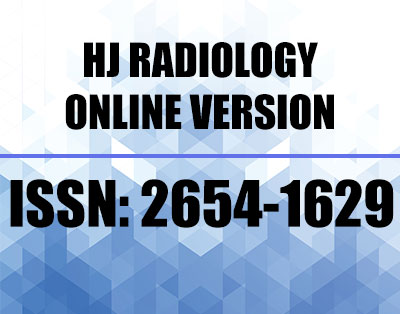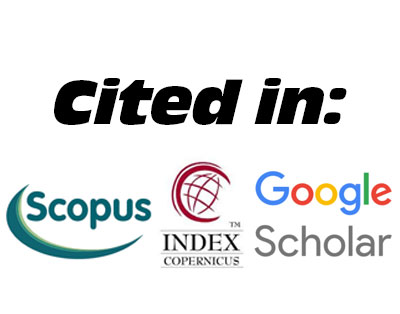Automated Segmentation of Knee Joint Cartilage: A Clinical Applicability Study of pyKNEEr
Abstract
Abstract
Objective: This study aims to evaluate the feasibility and accuracy of the Python Knee Cartilage Image Analysis Workflow (pyKNEEr), open-source tool for automated segmentation of standard sagittal magnetic resonance imaging (MRI) in assessing femoral knee joint cartilage tissue changes, in comparison with the established Whole-Organ Magnetic Resonance Imaging Score (WORMS) and actual arthroscopic findings.
Materials and methods: This study, conducted from January to October 2022, involved a cohort of 10 patients with varying degrees of femoral bone cartilage changes. The patients underwent knee arthroscopy for internal meniscal damage. Sagittal MRI tomograms were analyzed using pyKNEEr v0.0.5 for cartilage tissue measurements, and manual assessment was performed using the WORMS scale. Statistical data processing was performed using Pingouin 0.5.3 and Numerical Python (NumPy) 1.24.2 for Python 3.9 (Python Software Foundation, Delaware, USA).
Results: The pyKNEEr analysis showed an average total cartilage thickness of 2.26 ± 0.21 mm, (2.33 ± 0.26 mm for men, 2.22 ± 0.19 mm for women), and an average total cartilage volume of 10242.2 ± 1860.75 mm³, (10,380.25 ± 2,654.41 mm³ for men, 10,150.17 ± 1,406.89 mm³ for women).
A statistically significant strong inverse correlation was found between cartilage thickness and WORMS score (r=-0.813, 95% CI -0.95 to -0.38, p=0.025). Additionally, a moderate inverse correlation was observed between cartilage volume and WORMS score (r=-0.777, 95% CI -0.94 to -0.29, p=0.049). No statistically significant correlations were identified by using the ICRS scale.
Furthermore, there was no significant association between cartilage thickness and volume as determined using pyKNEEr.
Conclusion: pyKNEEr for automated segmentation of standard sagittal MRI images, demonstrates alignment with the WORMS scale, but neither pyKNEEr’s automated segmentation nor the WORMS scale showed a statistically significant correlation with the arthroscopic depiction of cartilage defects.
Keywords
Full Text:
PDFReferences
Pedoia V, Majumdar S, Link TM. Segmentation of joint and musculoskeletal tissue in the study of arthritis. Magma N Y N. 2016 Apr; 29(2): 207–21.
Wirth W, Eckstein F. A Technique for Regional Analysis of Femorotibial Cartilage Thickness Based on Quantitative Magnetic Resonance Imaging. IEEE Trans Med Imaging. 2008 Jun; 27(6): 737–44.
Peterfy CG, Guermazi A, Zaim S, et al. Whole-Organ Magnetic Resonance Imaging Score (WORMS) of the knee in osteoarthritis. Osteoarthritis Cartilage. 2004 Mar 1; 12(3): 177–90.
Schreiner MM, Raudner M, Marlovits S, et al. The MOCART (Magnetic Resonance Observation of Cartilage Repair Tissue) 2.0 Knee Score and Atlas. Cartilage. 2021 Dec; 13(1 Suppl): 571S-587S.
More S, Singla J, Abugabah A, et al. Machine Learning Techniques for Quantification of Knee Segmentation from MRI. Sarfraz DrS, editor. Complexity. 2020 Dec 7; 2020: 1–13.
Rahman MM, Dürselen L, Seitz AM. Automatic segmentation of knee menisci – A systematic review. Artif Intell Med. 2020 May 1; 105: 101849.
G.A. Airapetov, A.A. Vorotnikov, E.A. Konovalov, et al. Making a thickness map of the human knee hyaline cartilage. ulyanovsk Medico-Biological J. Available via: gialinovogo-hryascha-kolennogo-sustava-cheloveka/viewer published 2024 Apr 13
Bonaretti S, Gold GE, Beaupre GS. pyKNEEr: An image analysis workflow for open and reproducible research on femoral knee cartilage. Olier I, editor. PLOS ONE. 2020 Jan 24; 15(1): e0226501.
Wang Q, Wu D, Lu L, et al. Semantic Context Forests for Learning-Based Knee Cartilage Segmentation in 3D MR Images. In: Menze B, Langs G, Montillo A, Kelm M, Müller H, Tu Z, editors. Medical Computer Vision Large Data in Medical Imaging. Cham: Springer International Publishing; 2014. p. 105–15.
Shan L, Charles C, Niethammer M. Automatic Atlas-based Three-label Cartilage Segmentation from MR Knee Images. Proc Workshop Math Methods Biomed Image Analysis. 2012; 241–6.
DOI: http://dx.doi.org/10.36162/hjr.v9i4.638
Refbacks
- There are currently no refbacks.







